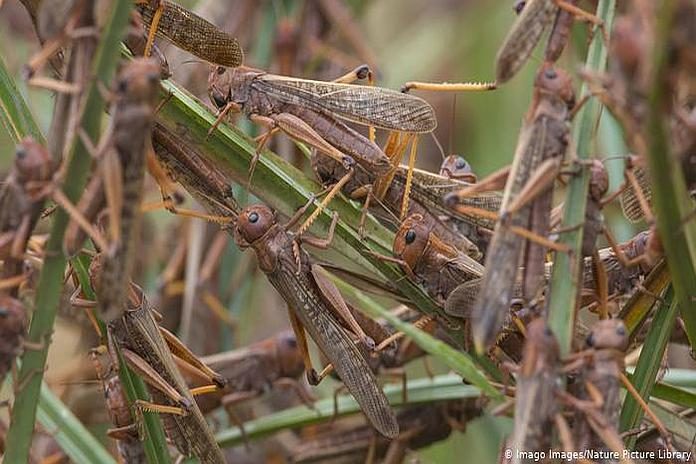BERN, Switzerland – The Swiss Agency for Development and Cooperation (SDC) at the Federal Department of Foreign Affairs (FDFA) is donating CHF 1 million to the Food and Agriculture Organization of the United Nations (FAO). East Africa has been hit by a massive infestation of desert locusts and as the situation evolves, the SDC may need to mobilise additional funding in partner countries.
Locusts, which are highly mobile and consume large quantities of vegetation, are considered the most destructive migratory pests in the world.
Somalia, Ethiopia, and Kenya have been hit by the worst outbreak of desert locusts in decades. Thousands of hectares of farmland have been ravaged, threatening the lives and livelihoods of millions of people already struggling with food insecurity. With the favourable weather conditions, the swarms are now heading to Uganda and South Sudan.
On January 28 2020, the FAO appealed to the international community for USD$ 76 million to help stem the outbreak, mitigate the damage caused by this pest and support the families affected.
Switzerland has contributed CHF 1 million in support of this appeal and is keeping a close eye on the situation. If the crisis continues, requiring a further response, the SDC may need to mobilise additional funding in its areas of intervention.
Supporting food security among communities in Somalia, Ethiopia and northern Kenya has been a priority for Swiss development aid since 2013.
“In the past, we have allocated emergency funds to respond to the consequences of drought and floods in the Horn of Africa. The locust infestation is having an equally devastating impact on the food security of local people, who can only look on helplessly as their crops are lost,” says Manuel Bessler, the FDFA’s humanitarian aid delegate.
Some 12 million people on the ground are facing acute food insecurity. Despite the efforts that have already been made, the insects are posing a severe humanitarian risk to a further 20 million people. The situation is being exacerbated by conflicts and climate-related events. The locust infestation is threatening to destroy the progress achieved in recent years and could cause new waves of population displacement.
The funds raised from the international community will be used to support affected households, deal with the locust infestation and stop swarms from spreading. The aid must be used to re-establish food stability for families and increase their resilience. Measures have been initiated to support monitoring operations, coordinate international assistance, set up training programmes and deliver appropriate humanitarian aid to affected households, for example by transferring money, providing livestock feed, and supplying seeds and soil-related products.





